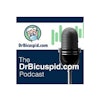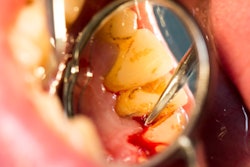
Oral health should be evaluated with eating disorders (EDs) in mind to support patient well-being, and clinicians must know how to address oral issues in these patients, according to study findings published in the Journal of Dentistry.
Furthermore, dentists should provide personalized advice for these individuals and collaborate with a multidisciplinary medical team, the authors wrote.
"Oral signs and symptoms must be interpreted in the context of a possible ED diagnosis so that prompt referral and early management can be initiated," wrote the study's authors, led by Charlotte Cheuk Kwan Chan of the University of Hong Kong (J Dent, October 19, 2024).
For this systematic review and meta-analysis, a literature search was conducted across five electronic databases (PubMed, Embase, Cochrane Library, Web of Science, and PsycINFO). Outcomes assessed included caries, erosion, and salivary composition of individuals with EDs.
The review included 33 studies. Meta-analyses were conducted using Stata 16.1, applying a fixed-effects model for subgroups with fewer than five studies and a random-effects model for larger groups, with sensitivity analyses to check for outliers, they wrote.
A total of 17 studies examined dental caries, with 15 studies involving 1,487 participants included in the meta-analysis. Six of the studies reported significantly higher rates of decayed, missing, or filled teeth or surfaces in individuals with EDs compared to controls. The overall analysis showed significantly higher caries rates in the ED group (standardized mean difference, 0.28; p = 0.005), according to the results.
Additionally, 20 studies assessed dental erosion, with most showing significantly greater erosion in individuals with EDs, particularly on lingual surfaces and incisors. Variations in measurement methods were noted, but a meta-analysis of nine studies found individuals with EDs had a markedly higher prevalence of erosion (odds ratio, 15.27; p <0.001).
Participants with EDs showed lower concentrations of calcium, sodium, and potassium in stimulated saliva, which may impact saliva's buffering and flow properties, though the clinical significance remains unclear. Individuals with anorexia nervosa and bulimia nervosa had higher levels of enzymes like AST, ALT, and lactate dehydrogenase, which are linked to tissue breakdown and periodontal disease, according to the study.
However, the study had limitations. The certainty of the evidence was affected by significant imprecision, inconsistency, and potential bias, the authors wrote.
"Dentists should be aware of how to manage oral problems in patients with EDs and tailor advice appropriately, such as providing advice not to directly brush after vomiting, and collaborate with the wider medical team of psychiatrists, psychologists and dieticians to promote patient wellbeing,” they concluded.




















